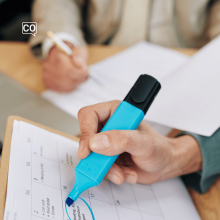Quedar (to meet) - Pretérito perfecto, indicativo (Present Perfect, indicative) - Spanish

Quedar - Conjugation of to meet in Spanish: Conjugation table, examples and exercises in the present perfect, indicative tense (Pretérito perfecto, indicativo).
Pretérito perfecto, indicativo (Present Perfect, indicative)
All conjugations and tenses: Quedar (to meet) - conjugation and tenses - (Spanish)
Syllabus: Spanish lesson - Días de la semana y partes del día. (Days of the week and parts of the day)
Conjugation of to meet in Pretérito perfecto
- yo he quedado I have met
- tú has quedado You have met
- él/ella ha quedado he has met
- nosotros/nosotras hemos quedado we have met
- vosotros/vosotras habéis quedado You have met
- ellos/ellas han quedado They have met
Example phrases
- Yo he quedado con mis amigos en el parque. I have met with my friends in the park.
- Tú has quedado en casa para estudiar. You have stayed at home to study.
- Él ha quedado con su novia esta tarde. He has met with his girlfriend this afternoon.
- Nosotros hemos quedado para ver una película. We have met to watch a film.
- Vosotros habéis quedado para cenar juntos. You all have met to have dinner together.
- Ellos han quedado en el restaurante. They have met at the restaurant.
Exercise: Conjugate the verbs - quedar (to meet)
Instruction: Choose the correct word, read the sentence out loud and translate.
Show answers Show translationQuedar (Pretérito perfecto, indicativo)
1. Yo ... con mis amigos en el parque.
2. Nosotros ... para ver una película.
3. Ellos ... en el restaurante.
4. Él ... con su novia esta tarde.
5. Vosotros ... para cenar juntos.
6. Tú ... en casa para estudiar.